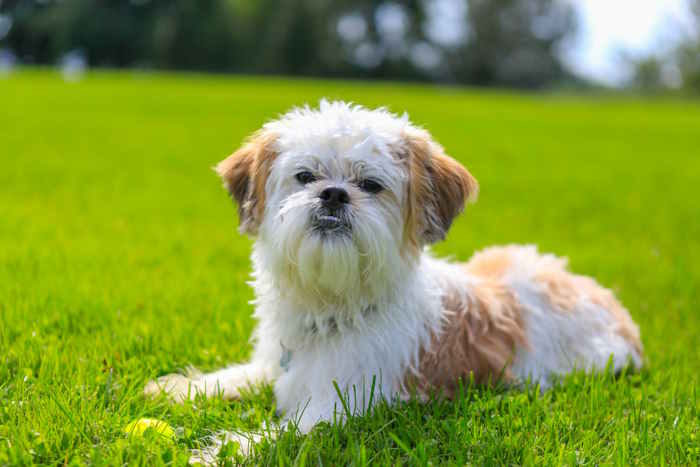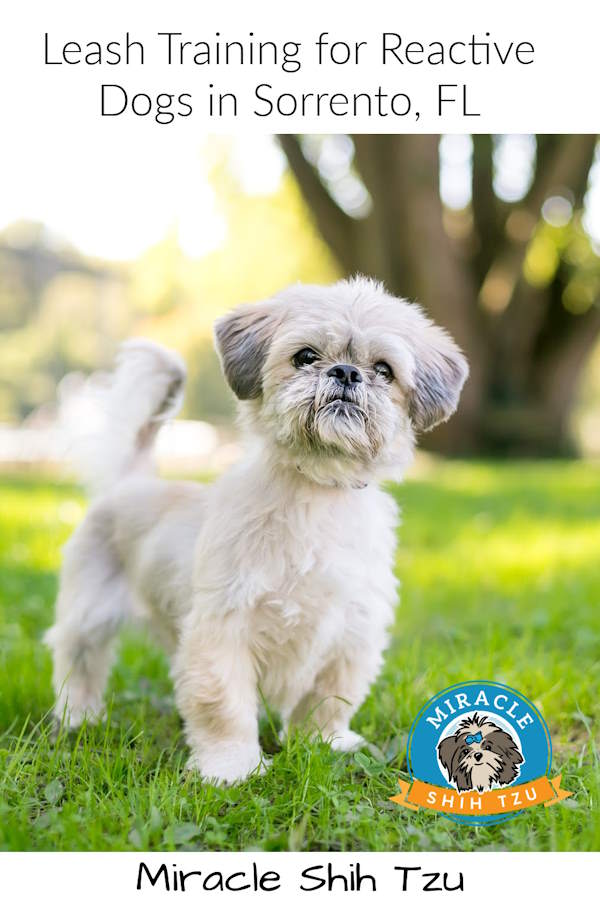Leash Training for Reactive Dogs in Sorrento, FL
Leash Training for Reactive Dogs in Sorrento, FL
Reactive dogs can make life challenging when out and about, but training them to calm down and follow commands regardless of triggers in their environment can help ease this burden.
Rehabbing can be challenging and require time, but it is possible. Here we will examine some key strategies trainers use when working with reactive dogs.

Training at the Sub-Threshold
Reactive dogs often display behaviors that can be both confusing and frustrating to their owners. They become easily aroused and cannot help but bark, lunge or growl in response to common triggers like men with beards, large dogs (but not small dogs), skateboarders or bicycles. Reactive canines may also exhibit other behavior patterns including whining, hiding, pacing, shaking and shutting down completely.
Dog-behavior professionals first adopted the term "reactive" about 15 years ago because it seemed more inclusive than "aggressive.” Experts like Lori Tolliver know that not all reactive dogs are aggressive and can be safely trained to improve their behavior. Reactivity can be widespread; however only very rarely does reactivity manifest itself into physical aggression.
Reactivity may result from poor socialization as a puppy or trauma from injury, fearful interactions between dogs, or simply having difficulty on leash; other dogs become frustrated at not being allowed to greet and play with other canines when given the chance.
No matter the cause, most reactive dogs must be trained with patience and time so they learn not to react inappropriately when faced with triggers.
Counterconditioning and desensitization techniques are effective ways of doing just this - learn to associate each stimulus with something positive like treats or playtime.
Using Positive Reinforcement

Living with a reactive dog can be challenging. Walking them around your neighborhood becomes an exercise in frustration with triggers and yelping; yet this can be overcome through time, patience and professional guidance using force-free training methods.
Positive reinforcement is key to successful dog ownership. Reward is defined as anything that increases the probability that certain behaviors will repeat themselves; these could include treats, toys or petting.
Reactive dogs can be difficult to train due to their high level of excitement. Rewarding this behavior could actually increase it over time; therefore, understanding your dog's threshold and body language in order to use positive reinforcement for lasting changes in reactivity.
As well as using positive reinforcement, making sure your dog gets enough physical exercise can also be effective at controlling its emotions and reducing reactivity. This may involve taking him/her for fun activities like playing fetch at the local dog park or going for jogs together (with supervision of course), as well as hiding potential triggers or using baby gates to limit exposure.
Changing the Environment
Reactive dogs can be challenging to handle, but working with a qualified professional trainer can make the task much simpler. Their knowledge and expertise enables them to develop tailored training plans for each dog using techniques like desensitization and counterconditioning in combination with impulse control training that help break the cycle of reactivity.
Trainers aim to alter the environment around reactive clients in order to make it safer and more predictable for them, which may involve placing their dogs on long lines (of at least 20ft/6m length) during walks instead of short ones which trap them in place and cause tension; or taking them to quieter places like parks where there are fewer people or cars nearby.
Owners should also remain consistent and patient during training, especially with reactive behavior issues that take longer to address than expected. Otherwise, progress will likely remain slow.
Changing Your Mindset
People often dream of owning a dog and envision long,
leisurely walks together or participating in exciting agility competitions; but
when faced with a reactive pup, even these activities become challenging.
Reactive dogs overreact to stimuli in their environment by showing tense body
postures, barking loudly, lunging forward and growling--eventually leading
their owner into acting defensively against these behaviors themselves.
Reactive dogs don't all show aggression. According to dog behavior experts, only a small proportion will actually bite when reacting. Most are simply scared or excited and might also be trying to protect themselves, their territory, or food sources.
Reactive dogs can be helped through various training techniques. A trainer will utilize positive reinforcement, desensitization and counterconditioning in order to break the cycle of reactivity. They'll also work closely with owners in managing their dog's behavior and improving impulse control.
If your reactive dog is becoming difficult, don't give up! Professional dog trainers have the knowledge and experience necessary to help you overcome challenges and build a meaningful relationship. With time and patience, both of you can live happy lives together.
Conclusion
If you have a reactive dog, you're likely frustrated by the situation. Your dog may not be aggressive, but rather scared or excited and may respond by trying to protect themselves or their territory. Professional dog trainers are your best bet for getting help for your dog. It does take time and patience, but it's worth it in the end.
Leash Training for Reactive Dogs in Sorrento FL: Pin For Future Reference
"Hi, I'm Janice Jones, a former veterinary technician and Shih Tzu expert with over 40 years of experience with the breed. Through Miracle Shih Tzu, I combine my medical background and extensive breed knowledge to provide reliable, practical advice for Shih Tzu owners. My mission is to help you give your Shih Tzu the happiest, healthiest life possible through evidence-based information and real-world solutions. Whether you're new to the breed or a seasoned owner, you'll find trusted guidance here for all aspects of Shih Tzu care.
I hold an undergraduate degree in Psychology with a minor in biology, Early Childhood Education, and Nursing, and a Master's in Mental Health Counseling.




